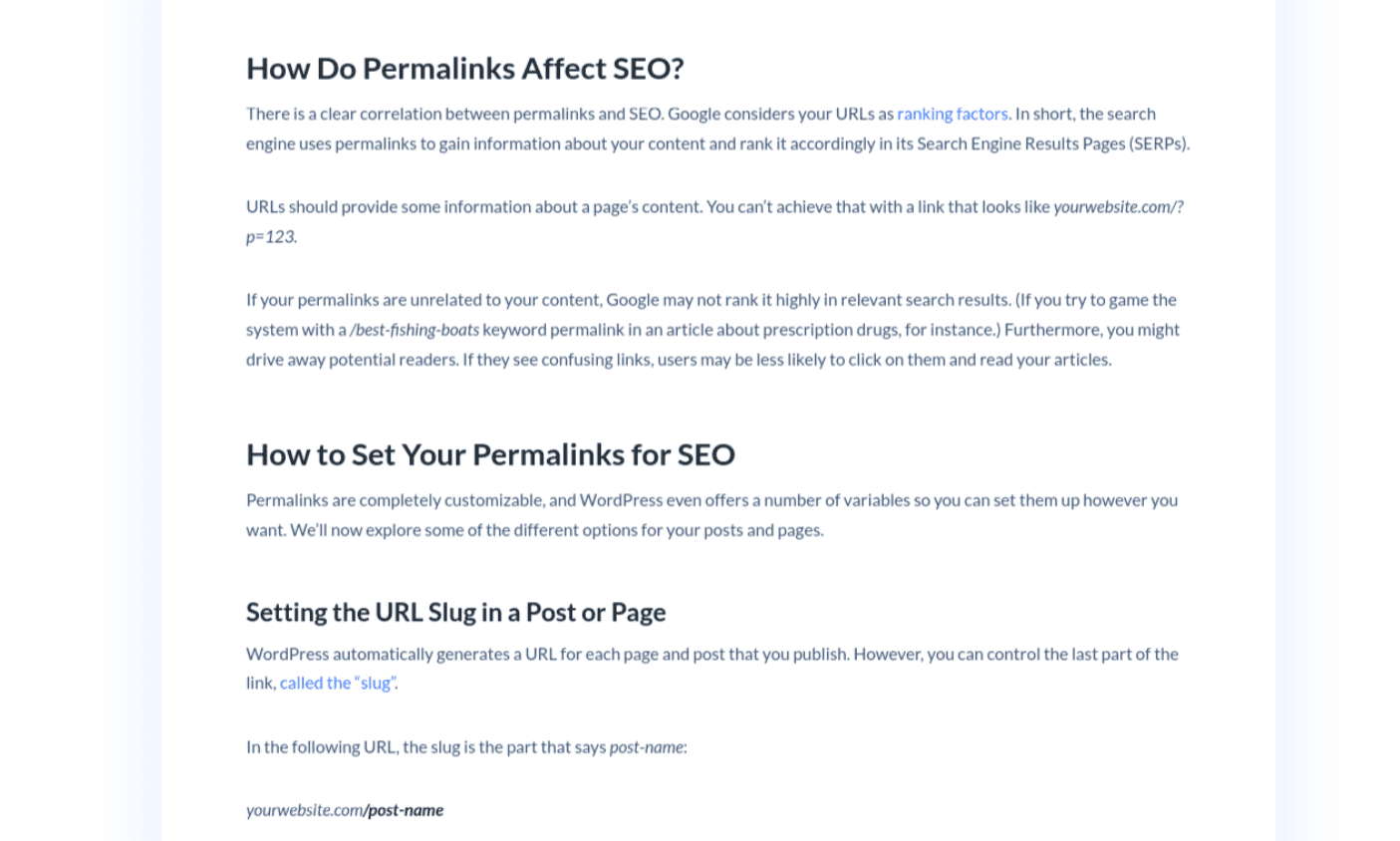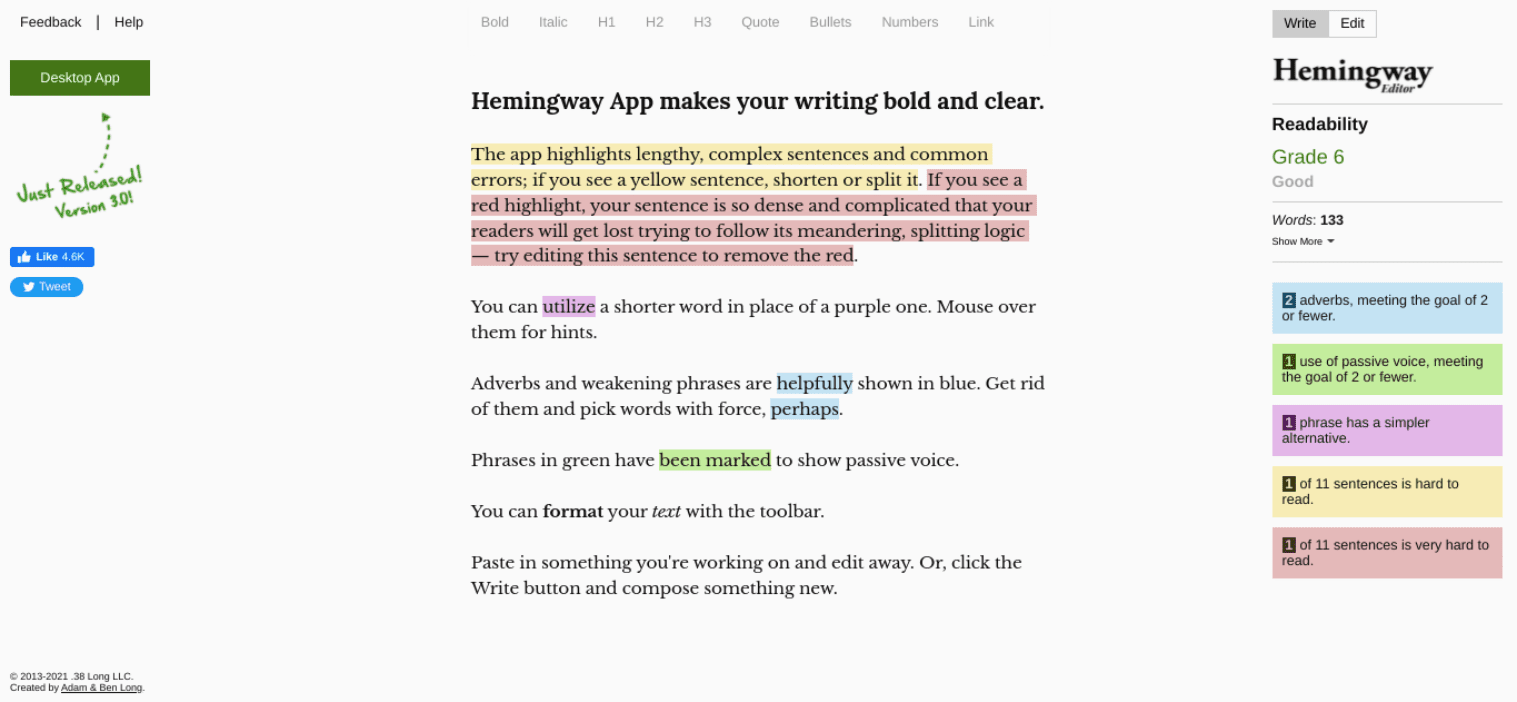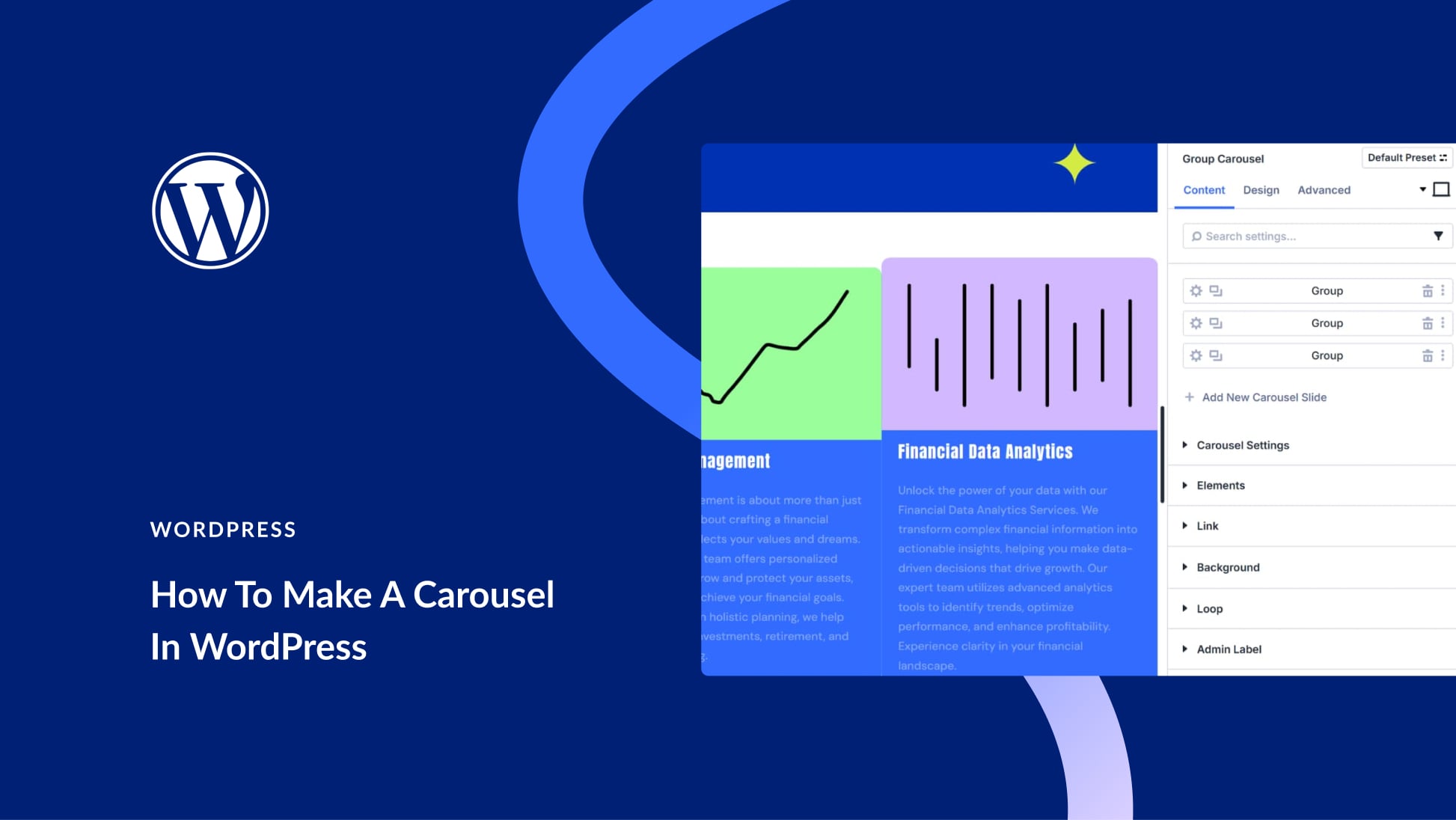If you want your website to rank well in the Search Engine Results Pages (SERPs), you’ll need to publish high-quality, relevant, Search Engine Optimized (SEO) content. However, determining the correct length for your articles can be challenging. That’s why learning the best word count for SEO is so essential.
In this post, we’ll discuss why word count matters for SEO. Then we’ll walk through the best word count for each content type and share some tips for writing better articles. Let’s jump in!
Does Word Count Matter?
There is a lot of debate about whether word count matters for SEO. Some people say the longer the article, the better. Others argue that it’s not the quantity but the quality of words that count. Word count is important, but in reality, it’s a combination of the two views.
It helps to understand why word count matters for SEO. Typically, the longer the content, the easier it is for Google to determine what your article is about. This length helps the search engine crawl and interpret the information and rank it in the relevant SERPs.
Generally, Google tends to favor longer articles. That said, we don’t recommend making your posts lengthy for the sake of it. Google can tell if your article is mostly fluff. And so can your readers.
It’s essential to ensure you provide relevant and unique information that accurately reflects your post title. Otherwise, you risk boring your users, which won’t bode well for your reader engagement or SEO.
In addition, high word counts leave ample room for optimization. For example, you’ll have more opportunities to incorporate your target keywords, including long-tail variations, without keyword stuffing. You can also work in other content elements to boost SEO, including headings, images, and links.
Finally, longer articles let you explore topics in greater depth than is possible with confined word count limits. While you can answer some questions with thin content, it’s not necessarily the best approach for all posts and pages.
What Is the Best Word Count for SEO?
There are some general SEO guidelines and best practices to follow. However, there isn’t necessarily a one-size-fits-all answer for word count SEO. Instead, the best word count depends on a handful of factors, such as the type of page you’re creating.
Backlinko published a study claiming the best word count for SEO was 1,447. However, this doesn’t mean that writing 1,500 or 2,000-word posts will automatically send your content to the first ranking position in the SERPs.
Instead, this number is an average word count of the pages and posts that rank the highest in Google search results. Therefore, you can use it as a benchmark for your content, gauging whether or not your content has provided enough detail and value for Google to rank it.
Let’s look at which lengths are best for specific types of content. Again, keep in mind that these are general estimates.
Blog Posts
For most websites, blog posts and articles like this one make up the majority of content. Usually, it’s appropriate for them to range anywhere from 300 to 1,000 words. However, long-form articles that go into more depth, such as tutorials or how-to posts, should be closer to 1,500 words. Going over that (except in very specific circumstances for valid reasons) tends to make Google and users look more warily at the post.
Educational Content
Educational content tends to be longer simply due to the nature of its material. You’re teaching someone about a concept, product, or process they’re unfamiliar with. Therefore, to include clear, thorough explanations and instructions, it’s best to aim for approximately 2,000 words. Much less than that, and your readers and search engines might think you’re glossing over needed information.
Product Pages
Effective product pages have attractive images and creative copy. However, to showcase your products in an aesthetically pleasing and concise manner, it’s best to avoid excessively long descriptions:

Approximately 300 words is a good word count for product pages. This length leaves plenty of room for describing a product, highlighting its unique features and benefits, and incorporating short and long-tail keywords. But without going into full-length article mode or keyword stuffing.
News Articles
News-based content needs to be factual and straightforward. There isn’t a lot of room for opinions or commentary. As such, news articles should ideally be between 500 and 800 words. This length is appropriate for thoroughly covering events and including relevant details and quotes without veering off-topic.
Landing Pages
The primary purpose of landing pages is to drive conversions. The central focus should be on pointing the visitor to your Call To Action (CTA):

Therefore, the best SEO word count for your landing pages is about 500 words. This length lets you provide adequate information, including keywords, to engage and inform readers. However, it’s still short and sweet enough to get directly to the point and incentivize users to perform the desired action.
Overall, it’s important to remember that the best word count for SEO is how many words are needed to write a high-quality and informative piece of content. Writing for your readers should always come first, followed by search engines. Taking this approach can help your SEO rankings improve organically.
How to Achieve Your Target Word Count (4 Key Tips)
Deciding how long you want to make your post is one thing. However, reaching that length can be challenging. If you’re struggling to achieve your target word count, consider using some of the following tips!
1. Use Headings to Break Up Your Posts Into Sub-Topics
One of the best ways to lengthen your articles and not hurt the User Experience (UX) is to break up your content into subsections. You can use headings to organize your post and improve its scannability:

When you use multiple headings in a post, you can dedicate specific sections to each idea or topic. This structure prevents the article from looking like one long block of text. It also makes it easier to explore each subcategory in further detail.
Incorporating key terms in your headings can also help boost your SEO. Remember that there should only be one H1 tag per post. However, you can include as many H2 and H3s as you wish. Just keep them to their semantic hierarchy — don’t nest H4 headings under H2, for instance. Be sure to drill down from H2 then H3 for subtopics, then H4 if you must. Returning to an H2 when you get to a new section.
If you are using WordPress, you can make things a lot easier on yourself by using an SEO plugin. There are a lot of great plugins, and most of them will audit your content and give you recommendations for improving your content structure and achieving optimal keyword density and word count.
2. Write Tutorials as if You’re Explaining Concepts to a Child
When you want to expand your posts, it’s essential to thoroughly flesh out your ideas and provide sufficient detail and explanations. This is particularly important when you’re writing how-to posts or tutorial-style articles.

Still, you should consider writing as if you’re explaining the instructions to a child. Ask yourself whether they would understand the steps needed to complete the process. Maybe not the technical details, but the steps themselves. Are they logical and well-thought-out?
You can make your posts clearer by using simple language, short sentences, and covering each tutorial step in detail. We recommend breaking up the steps into a list format so that readers can follow the natural progression of the walkthrough. You might also consider including images or videos to complement your written content.
3. Use Research to Back Up Your Claims
Using research and statistics that back up your claims can increase the length and credibility of your posts. Including data and research findings can help legitimize your content, highlight key concepts and ideas, and enable readers to explore additional topics in greater depth.
We recommend finding the original sources for statistics whenever possible. Furthermore, you might consider linking to academic texts or authority websites to back up your claims more effectively.
4. Cut Out Unnecessary Fluff
In most cases, the biggest struggle with achieving a target word count is making a post longer. However, there are instances when you might be looking to keep your content under a specific length.
When this is the situation, you’ll need to edit your article to cut out unnecessary fluff. When we say “fluff,” we mean words that don’t add value to your content. Removing it involves keeping only the most important, engaging, and relevant information.
Fortunately, you can use helpful tools such as Grammarly or Hemingway App to cut out fluff:

In addition to making your content grammatically correct, these tools can identify wordy sentences and rework them for better readability. For example, Hemingway highlights sentences that are difficult to read and offers suggestions for simplifying them.
We also recommend looking for opportunities to minimize and eliminate repetition. If a phrase or concept requires context or explanation, consider linking to a more in-depth resource covering the topic.
Conclusion
Publishing new, relevant, and high-quality content consistently is a cornerstone of effective online marketing. However, determining the correct length for your posts can be confusing. We hope that this post has you considering how you can best create your content to have the best length to attract visitors and search engines.
Considering the length of your posts is vital for search engine visibility. There is no overarching best word count for SEO. However, we recommend aiming for at least 1,000 words for standard blog posts, 2,000 for long-form content, and 300-500 for news posts or product pages. Ultimately, you should try to cover the topic in a meaningful and thorough way without using fluff or repetition. Do that, and your word count should fall into line quite nicely.
Do you have any questions about the best word count for SEO? Let us know in the comments section below!
Featured Image via 7ASCIIz / shutterstock.com









Hi Will,
What an informative share. Good to know more about the word count and it’s benefits in SEO.
Yes, there are two opinions on this as you mentioned, ofcourse that’s valid too, quality is more important and at the share time quantity too is important.
You very well explained the various factors in both. It really depends on the subject you deal with, of it’s an educational or tutorial one a long word content will works wonders in all area, including the SEO factor.
Well researched post. I prefer long word contents in my site especially when someone pitch in.
In fact i am really following some of the things you noted in my website, but I need to look into more tips you mentioned in this post and will apply to my future contents.
I am bookmarking 🔖 this for my further reference and study.
Keep sharing.
Best Wishes and Regards
Thanks for the feedback, Philip. And I’m glad you found it helpful 🙂
The best word count for SEO is whatever your competition is doing. Once you’ve determined your keywords and have identified your competition. If their blog posts are averaging let say 3k then ideally you want to write around 3k or more. I’m working on a “how to” blog post now and I’m already at around 3,500 words. I’m going for 5k or more words. 300 to 1k words just won’t cut it anymore UNLESS there is no competition.